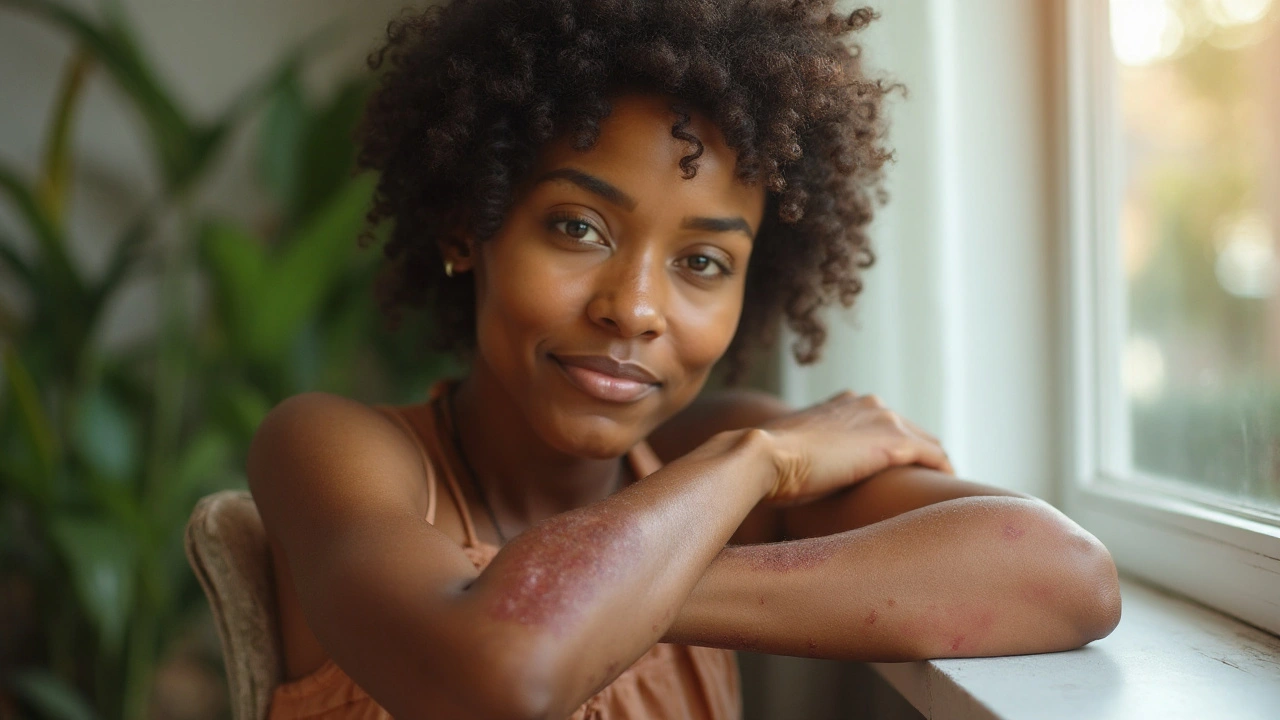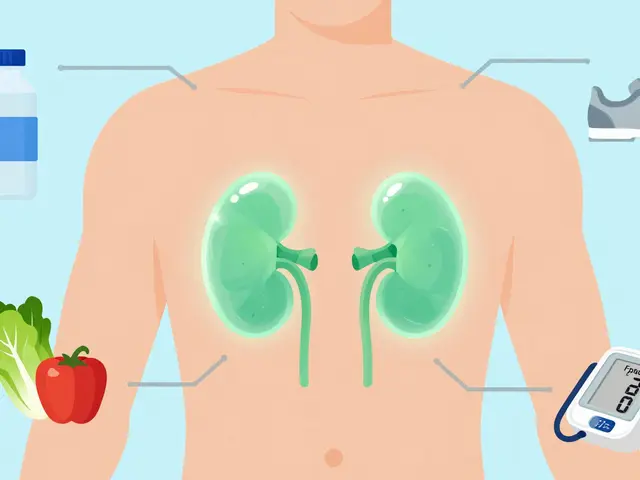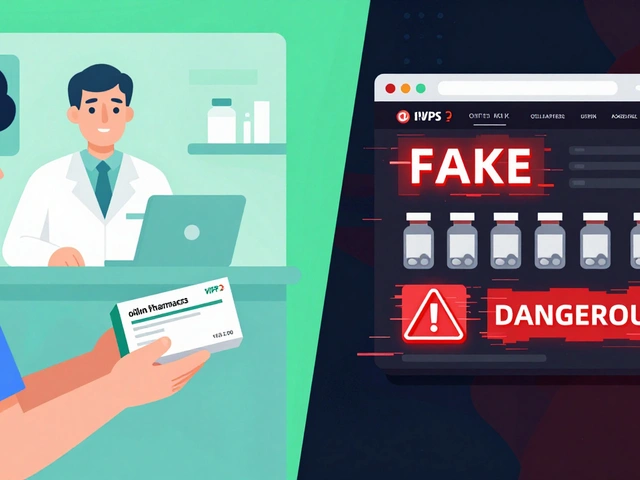
Plaque Psoriasis is a chronic auto‑immune skin disease that causes thick, red, scaly plaques, most often on elbows, knees and scalp. It affects about 2-3% of the global population and is known for its relapsing‑remitting pattern. While the visible lesions can be distressing, the hidden psychological toll is often even more profound.
Why Mental Health Matters in Plaque Psoriasis
Research from dermatology centres in the UK and the US shows that up to 40% of people with plaque psoriasis experience clinically significant Depression, and nearly 30% report moderate to severe Anxiety. The numbers aren’t random; they stem from shared biological pathways and everyday lived‑experience stressors.
Biological Bridges: Cytokines and the Brain
Inflammatory Cytokines such as TNF‑α, IL‑17 and IL‑23 circulate both in skin lesions and the bloodstream. These molecules can cross the blood‑brain barrier, altering neurotransmitter function and triggering mood‑disorder symptoms. A 2023 cohort study cited by the British Association of Dermatologists confirmed higher serum IL‑17 levels in patients reporting depressive scores.
Everyday Impact: Quality of Life and Stress
Beyond biology, the social stigma of visible plaques fuels Stress and social isolation. In a survey of 1,200 UK adults, 55% said they avoided social gatherings because of embarrassment, and 62% reported sleep disturbances linked to itching. These psychosocial pressures erode Quality of Life scores, which correlate closely with mental‑health screening outcomes.
Spotting the Signs: Screening Tools for Clinicians
Early detection saves lives. Dermatology clinics now routinely use brief questionnaires:
| Tool | Primary Focus | Items | Cut‑off for Moderate‑Severity |
|---|---|---|---|
| PHQ‑9 | Depression | 9 | ≥10 |
| GAD‑7 | Anxiety | 7 | ≥8 |
| DLQI | Dermatology‑Specific QoL | 10 | ≥6 |
These tools take less than five minutes to complete and can be integrated into routine check‑ups.

Holistic Care: Treating Skin and Mind Together
Modern treatment plans pair Biologic Therapy with mental‑health support. Biologics that target IL‑17 or IL‑23 not only clear plaques but also lower systemic inflammation, which can improve mood. A 2022 real‑world study reported a 23% reduction in PHQ‑9 scores after 12 weeks of IL‑23 inhibition.
Equally important is the role of the Dermatologist and the Psychologist. Collaborative clinics where patients see both specialists report higher adherence and better overall outcomes. Cognitive‑behavioural strategies, mindfulness‑based stress reduction, and peer‑support groups are proven to lower anxiety and improve coping.
Self‑Help Strategies: What Patients Can Do Today
- Mind‑body practices: Daily 10‑minute meditation can cut cortisol levels, which in turn reduces flare‑ups.
- Skin‑care routine: Gentle, fragrance‑free moisturisers keep the barrier intact, decreasing itch‑related stress.
- Physical activity: Moderate exercise boosts endorphins and has been shown to lower PASI scores (Psoriasis Area Severity Index) by 15% on average.
- Social connection: Joining a local or online psoriasis support group reduces feelings of isolation.
Looking Ahead: Research Frontiers
Ongoing trials are testing dual‑action drugs that simultaneously modulate skin inflammation and neuro‑inflammatory pathways. Meanwhile, large‑scale genomics projects aim to pinpoint shared susceptibility genes for psoriasis and major depressive disorder, promising personalised risk‑assessment tools.
Related Topics to Explore
For readers wanting to dive deeper, consider checking out articles on:
- Guttate psoriasis and its triggers
- Impact of diet on inflammatory skin conditions
- Tele‑dermatology and remote mental‑health screening
- Patient‑reported outcome measures in chronic disease

Frequently Asked Questions
Can plaque psoriasis cause depression?
Yes. The chronic inflammation, visible lesions, and social stigma associated with plaque psoriasis raise the risk of depression. Studies consistently show a two‑to‑three‑fold increase compared with the general population.
How do biologic drugs affect mental health?
Biologics that block cytokines such as IL‑17 and IL‑23 reduce systemic inflammation, which can ease both skin symptoms and mood disturbances. Patients often report lower anxiety and improved sleep after starting treatment.
Should I see a psychologist if I have psoriasis?
Seeing a mental‑health professional is advisable when you notice persistent sadness, anxiety, or trouble coping. Integrated care models let you discuss skin concerns with your dermatologist while receiving emotional support from a psychologist.
What simple steps can help reduce stress‑related flare‑ups?
Routine mindfulness, regular low‑impact exercise, and maintaining a consistent moisturising schedule are effective. Even brief daily breathing exercises can lower cortisol and lessen itching.
Are there screening tools I can fill out at home?
Yes. The PHQ‑9 for depression and the GAD‑7 for anxiety are free, validated questionnaires you can complete online. Scores above the cut‑off should prompt a conversation with your healthcare provider.




JAY OKE
September 23, 2025 AT 10:03Been living with this for 8 years. The itching at night? Brutal. But the worst part is when people stare like you’re contagious. I stopped wearing shorts in summer. Not because of the plaques - because of their looks.
Joe bailey
September 24, 2025 AT 07:38Y’all need to stop treating this like it’s just a skin thing. It’s a whole-body fire. I went from crying in the shower to running marathons after starting secukinumab. My therapist said my mood improved before my skin did. That’s wild.
mohit passi
September 25, 2025 AT 14:02Life’s too short to hide. I started posting pics of my plaques on Instagram. Got hate at first… then came the DMs. Dozens of strangers saying ‘me too.’ We’re not broken. We’re just loud in ways no one listens to. 🌱
Cynthia Springer
September 25, 2025 AT 19:40I read the part about IL-17 crossing the blood-brain barrier and it made me wonder - if we’re targeting cytokines for skin, why aren’t we testing them as biomarkers for depression in psoriatic patients? Could this be a new diagnostic pathway? I’m not a scientist, but it feels like the pieces are already there.
Aaron Whong
September 26, 2025 AT 23:52Let’s be real - this isn’t about ‘biologics’ or ‘mindfulness.’ It’s about the pharmaceutical-industrial complex co-opting suffering to sell drugs. They call it ‘holistic care’ but it’s just a fancy way to keep you on expensive biologics for life. The real cure? Stop eating gluten. I know because I cured myself.
Brittany Medley
September 28, 2025 AT 04:05Thank you for including the screening tools - PHQ-9 and GAD-7 are underused. I’m a nurse in a dermatology clinic, and I’ve seen patients cry because no one ever asked them how they were feeling. Five minutes. That’s all it takes. Please, if you’re reading this: ask. Even if you’re not a doctor.
Stephen Adeyanju
September 29, 2025 AT 08:50PSORIASIS IS A LIFESTYLE CHOICE BRO. I SAW A GUY ON TIKTOK WHO SAID HE GOT IT FROM ‘STRESS’ - LOL. YOU’RE JUST WEAK. IF YOU’D JUST WORK OUT AND EAT CLEAN, YOU WOULDN’T BE THIS UGLY. THIS ISN’T A MEDICAL ISSUE - IT’S A PERSONAL FAILURE
Amanda Wong
September 30, 2025 AT 19:43So now we’re supposed to believe that inflammation causes depression? What’s next? The moon causes acne? This is pseudoscience dressed up in lab coats. I’ve had psoriasis for 15 years and I’ve never been depressed - I’m just annoyed by all the hand-holding.
Kaushik Das
October 2, 2025 AT 18:49My dad had this. He never talked about it. But I saw him skip family dinners, avoid photos, hide his arms. He passed last year. I think the loneliness killed him faster than the plaques. If you’re reading this - reach out. Even a ‘hey, how are you?’ matters.
Sanjay Menon
October 3, 2025 AT 06:44It’s fascinating how the medical establishment has co-opted the language of ‘mental health’ to justify the exorbitant cost of biologics. The real issue? Capitalism commodifies suffering. A $20,000/year drug that reduces IL-23? Of course it works - but only for those who can afford the privilege of being healed.
Marissa Coratti
October 4, 2025 AT 06:04While the biological mechanisms linking cytokines and neuroinflammation are indeed compelling, it is equally imperative to consider the epigenetic and psychosocial determinants that may modulate the expression of depressive symptoms in individuals with chronic dermatological conditions. A multidimensional, biopsychosocial framework, grounded in longitudinal cohort analyses and validated patient-reported outcome measures, must be prioritized in clinical practice to ensure holistic, equitable, and sustainable care delivery.
Ali Miller
October 5, 2025 AT 09:19AMERICA IS BROKE BECAUSE OF THIS. WHY ARE WE PAYING FOR PSORIASIS THERAPY WHEN OUR SOLDIERS CAN’T GET PTSD COUNSELING? THIS ISN’T A DISEASE - IT’S A WELFARE SCAM. IF YOU’RE TOO EMBARRASSED TO SHOW YOUR SKIN, MOVE TO A COUNTRY THAT DOESN’T SUBSIDIZE YOUR INSECURITIES. #AMERICAFIRST
james thomas
October 6, 2025 AT 10:03They say biologics help your mood? Yeah right. I’ve been on them for a year. My skin’s better, but my anxiety? Worse. Now I’m paranoid every time I see a doctor. They’re just replacing one drug with another. I’m done playing their game.
Cynthia Springer
October 7, 2025 AT 04:11You’re not alone in feeling that way. I was on the same biologic. The first 3 months felt like a miracle - then came the emotional numbness. I stopped the meds, started therapy, and now I do daily breathwork. It’s not perfect, but it’s mine. No pill can replace that.